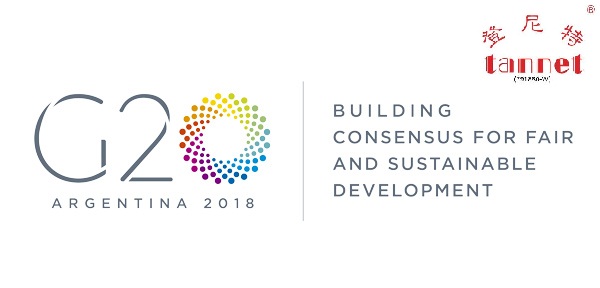From November 30th to December 1st, President Xi
Jinping will attend the G20 Leadership Summit in Buenos Aires, Argentina.
Previously, from 2013 to 2017, Xi Jinping had attended the G20 summit five
times. Among them, the 2016 G20 Summit was held in Hangzhou, China, and Xi
Jinping hosted the summit and delivered an important speech. What kind of
Chinese proposition did Xi Jinping convey on the occasion of the G20 summit?
I. Building an Open World Economy
The G20 is the main
forum for international economic cooperation. The
G20 is the main forum for international economic cooperation. On the fifth
summit, Xi Jinping has advocated the building of an open world economy. It is
China’s consistent position to oppose protectionism, maintain and strengthen
the multilateral trading system, and build an open world economy. At the 2015 Antalya Summit in Turkey, Xi Jinping
emphasized that it should oppose protectionism, maintain and strengthen the
multilateral trading system, and provide sufficient space for the development
of different countries. At the 2016 Hangzhou Summit, Xi Jinping pointed out
that the G20 should resolutely avoid being a proponent and promoter of an open
world economy and abiding by the promise of not adopting new protectionist
measures.
II. Innovative Development Methods
Xi Jinping attaches
great importance to innovation. On the platform of the G20, he has repeatedly
mentioned the importance of innovation. At
the 2013 St. Petersburg Summit in Russia, Xi Jinping pointed out that
development and innovation are the requirements for sustainable growth of the
world economy. We must improve the quality and efficiency of economic growth
and avoid simply relying on the growth rate of GDP. At the 2014 Brisbane Summit
in Australia, Xi Jinping suggested that the G20 members should innovate their own
development methods and pay more attention to the quality and efficiency of
growth. The 2016 Hangzhou Summit is based on the theme of “Building a Dynamic,
Linked and Inclusive World Economy”, highlighting the emphasis on innovation.

III. Strengthen Coordination of Economic Policies
The G20 is a product of
the crisis. After the 2008 international financial crisis, the G20 was in
danger and pulled the world economy that slipped to the cliff back to the track
of stability and recovery. In fact, the G20 is a platform for countries to
strengthen macroeconomic policy coordination and jointly promote global
economic growth.
IV. Inclusive Development Initiative
At present, the world
economic development is still unbalanced, and technological progress has become
increasingly challenging for employment. Achieving common development is the
universal aspiration of people of all countries, especially those in developing
countries. The initiative to embrace development and build a community of human
destiny is a major concept of Chinese diplomacy. At
the Hangzhou Summit, Xi Jinping proposed to reduce inequality and imbalances in
global development by supporting the industrialization of Africa and LDCs,
improving energy accessibility, improving energy efficiency, strengthening
clean energy and renewable energy utilization, developing inclusive finance,
and encouraging youth entrepreneurship to enable people of all countries to
share the fruits of world economic growth.
V. Improve Global Economic Governance
The G20 is also an
important platform for developed countries and developing countries to conduct
full consultations on international economic affairs. There are many unfair
places in the current global economic governance structure. For example, the
representation of emerging market countries in some international institutions
is still insufficient. Improving global economic governance and making it more
fair is one of the claims that China has been calling for.
At the 2017 Hamburg
Summit in Germany, Xi Jinping pointed out that since the outbreak of the
international financial crisis, the G20 has achieved positive results in
strengthening macroeconomic policy coordination, reforming international
financial institutions, improving international financial supervision, and
combating tax avoidance. An important contribution has been made to promoting
economic recovery. The next step is to continue to work in the above areas.
News
Source - < Global News >